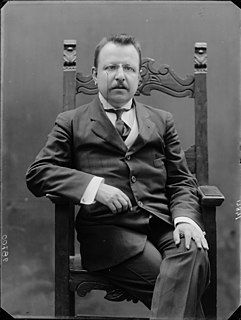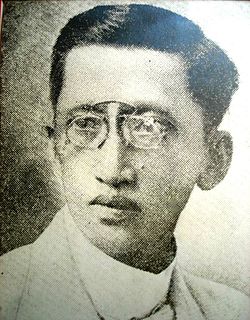A Quote by Benedetto Croce
The writing of histories - as Goethe once noted - is one way of getting rid of the weight of the past.... The writing of history liberates us from history.
Related Quotes
Writing of history is our only heuristic principle. The Germans have a word for it, einfühlen. It is the ability to experience the past in the present and to recreate it. In my books, I have tried to recreate it in the most natural way possible: History must be integrated into the story without the weight of premonition.
Today’s events are tomorrow’s history, yet events seen by the naked eye lack the depth and breadth of human struggles, triumphs and suffering. Writing history is writing the soul of the past… so that the present generation may learn from past mistakes, be inspired by their ancestor’s sacrifices, and take responsibility for the future.
History is the art of making an argument about the past by telling a story accountable to evidence. In the writing of history, a story without an argument fades into antiquarianism; an argument without a story risks pedantry. Writing history requires empathy, inquiry, and debate. It requires forswearing condescension, cant, and nostalgia. The past isn’t quaint. Much of it, in fact, is bleak.
Writing the past is never a neutral act. Writing always asks the past to justify itself, to give its reasons... provided we can live with the reasons. What we want is a narrative, not a log; a tale, not a trial. This is why most people write memoirs using the conventions not of history, but of fiction.
I started going out with one of my managers and he really grew me up in a lot of ways. He introduced me not just to being a full-time traveler, which I was, but he was also really very interested in history and art and continued to open my eyes up to regional history; less splashy histories. He was interested in historical societies and stuff like that. He introduced me to a way of looking at the way communities form that is the foundation for the book that I've just finished writing that has to do with what I see as effective community-building wherever I've been traveling.
Our world is not an optimal place, fine tuned by omnipotent forces of selection. It is a quirky mass of imperfections, working well enough (often admirably); a jury-rigged set of adaptations built of curious parts made available by past histories in different contexts. A world optimally adapted to current environments is a world without history, and a world without history might have been created as we find it. History matters; it confounds perfection and proves that current life transformed its own past.








































